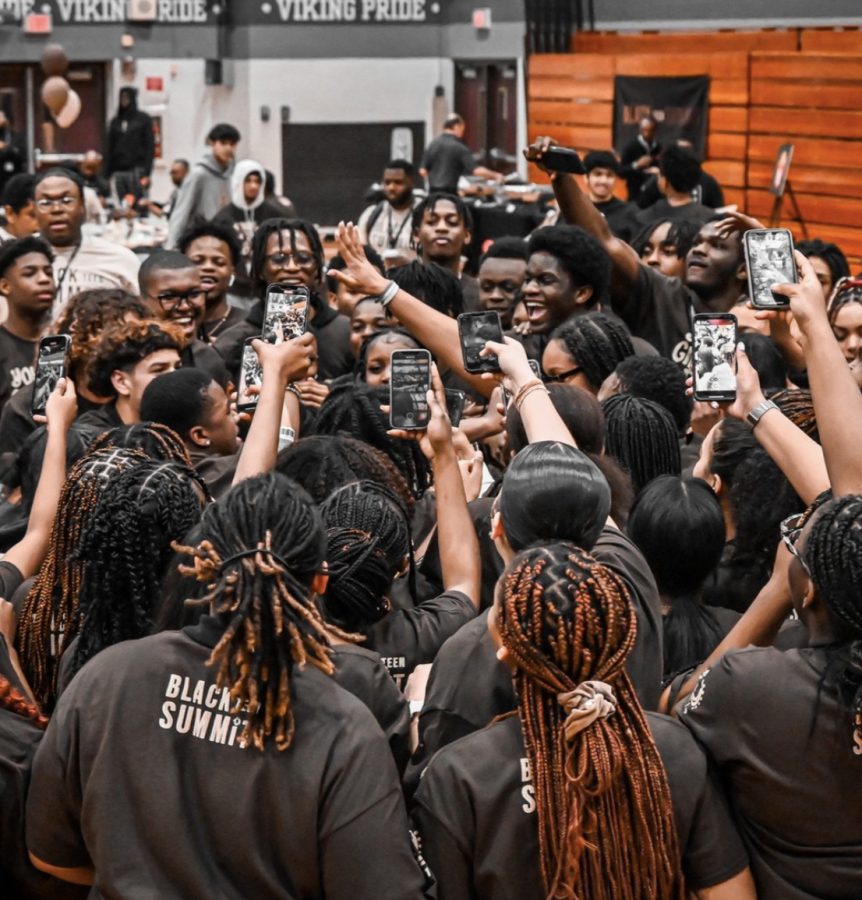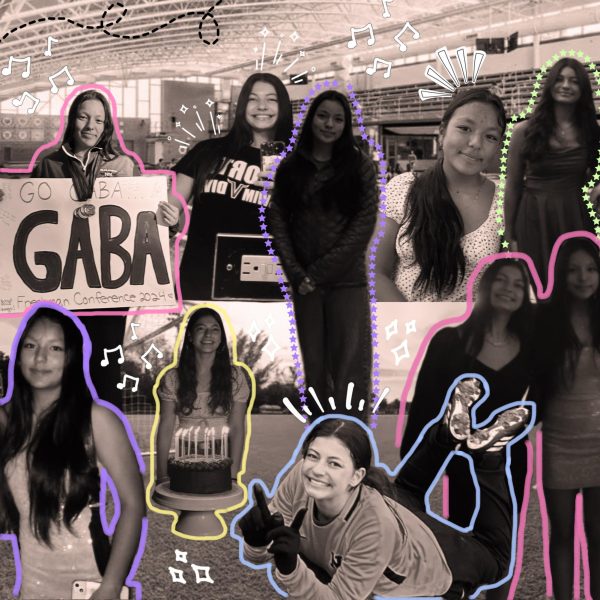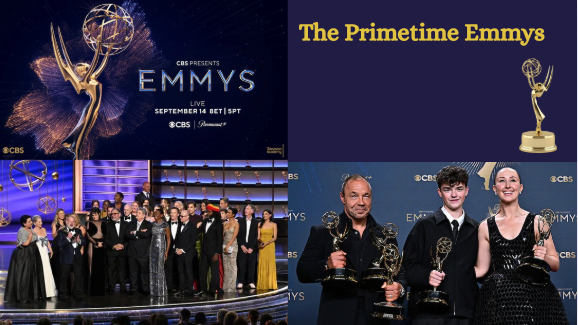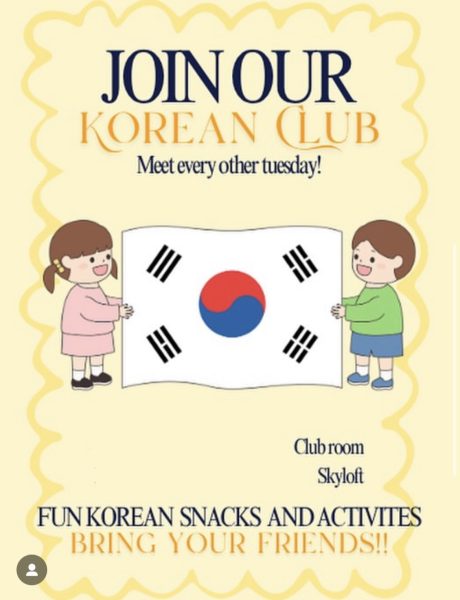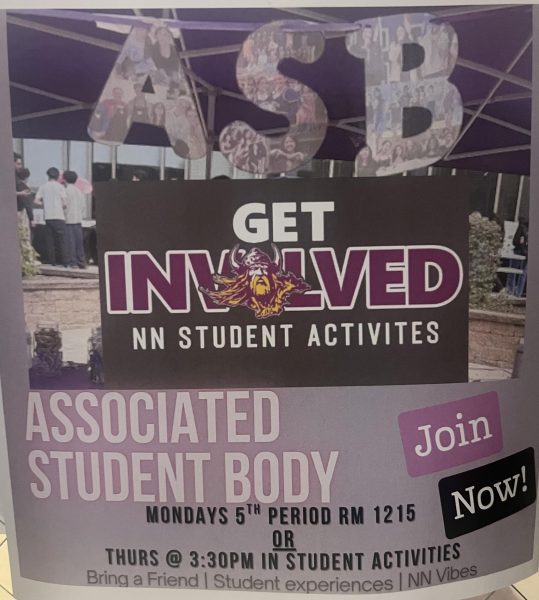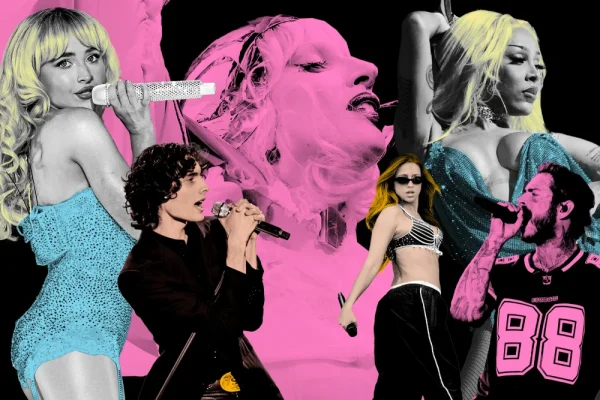Young, Gifted and Black: D219 students attend third annual Black Teen Summit
This year’s theme for our district’s third annual Black Teen Summit was “Young, Gifted and Black,” held on April 4, at Niles North High School. “Young, Gifted and Black” refers to a song by Nina Simone that aimed to capture the joy in Black identity. Each student was given a packet that laid out the contents of the summit, and on the first page the lyrics to Simone’s song were displayed; “You are young, gifted and Black, we must begin to tell our young. There’s a world waiting for you, your’s is the quest that’s just begun.”
From 7:30-9 a.m., we greeted one another and were served breakfast. This was time given to us before the summit began to say good morning. From 9-9:30 a.m., the summit was kickstarted by speeches from District 219 Executive Director of Communications and Partnerships April Stallworth, D219 Superintendent Tom Moore, D219 Chief Equity Officer Dr. La Wanna Wells, and incoming D219 Deputy Superintendent Dr. Roszena Haskins.
Dr. Haskins shared a story about her childhood and how growing up, because she was always forced to change schools and because she was Black, she never felt like she fit in. It was a story about the importance of having your own goals and identity, emphasizing resilience. My favorite quote from her speech was, “If your dreams don’t scare you, they’re probably not big enough.”
We then broke out into our breakout sessions. Students were given the choice to choose three workshops to attend out of nine:
- “Direction is More Important Than Speed,” led by Dr. Charmaine Harris, was a workshop dedicated to offering various post-education career path options.
- “Future Black Millionaires,” led by Shanda McFadden, was a session that focused on financial topics that have been intentionally withheld from the Black community as well as best practices for maximizing and optimizing your income and creating generational wealth.
- “Iron Sharpens Iron,” led by Dr. Roszena Haskins, was a season that provided in-depth information on Historically Black Colleges and Universities.
- “Minding My Black Owned Business,” led by Kenny Mac, April Stallworth and Jonda Cherry, was a session that featured a panel of speakers that have made great entrepreneurial strides in their respective fields of barbering, speaking/training, publishing, and writing.
- “Sports Don’t Build Character. They Reveal It,” led by Walter Mendenhall, Nick Torresso, Helen Ogunjimi, Garrett Jones, and Malachi Nix, was a session that featured a panel of current or former Black athletes that have played either collegiately, professionally, or both.
- “You Can’t Pour From an Empty Cup,” led by Natalie Frakes, was a session that highlighted the importance of mental health and self-care.
- “Your Hair is Your Crown,” led by Chop Chop Mobile Salon and Barber owner Kesia King, was a session that taught students how to love and properly care for their natural hair.
- “Lift Every Voice,” led by Kemone Hendricks, was a session that went into detail about activism and leadership and how multiple generations can learn from each other and mobilize to create positive change within the Black community.
- “Love is Love,” led by DaJuan Brooks, was a workshop dedicated to the LGBTQ+ community to talk with and support each other.
The first session I went to, from 9:35-10:20 a.m., was “Lift Every Voice.” Hendricks shared the three golden rules of advocacy. The first rule was to be polite; it is important to maintain a good attitude and reputation if you want to make a difference in the minds of those who might initially disagree with you. The second rule was to be prepared; you want to always be ready for whatever the world might throw at you. The last rule was to be persistent; as a Black activist, you must continue to fight even though it may be difficult or other people may tell you to stop. These three rules helped us learn what it means to not only be an activist but how to be a good one. We later played the “Advocacy Game” where we put these three rules to the test and were told to take a stance on a topic that we might not agree with. This forced us to realize the intricacies of activism and what it’s like to debate with an opposing side.
The next session I went to was “Your Hair is Your Crown” from 10:25-11:10 a.m., and this one was my favorite. King knew a lot about how to take care of our hair. We talked about products and the importance of reading labels to watch out for toxic and hazardous ingredients like parabens, sulfates, propylene glycol, and more. We then talked about the history of “our crown” and how hair was a status symbol for ethnicity. We learned about one of the first Black female entrepreneurs, Madam C.J. Walker, and the hair products that she created. We shared how as Black people, especially Black women, we are expected to conform to European beauty standards and straighten our hair for job interviews. King explained that we don’t need to do that and we should be proud of our natural hair.
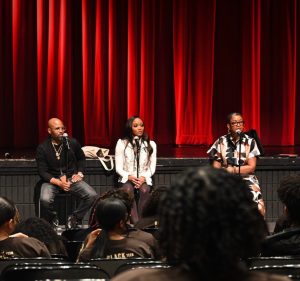
Later on, we played a game where we had to sort out different hairstyles by their date of popularity, and with that, we learned the individual histories of each hairstyle. For example, we learned about afros and the Black Power movement.
“It was nice! It was a good workshop and I like the way that King taught. The way she spoke was very to-the-point, laidback, and informal so it felt like she was talking with us instead of at us,” Niles North senior Donovyn Capellan said. “It was a very important session and I feel like our hair is one of the most important parts of our identities. It is one of the main differences between us and other people, and it comes in so many different textures and styles. I enjoyed it.”
From 11:15-12 p.m I attended the “Love is Love” session. In this space, students introduced themselves and shared their experiences with sexuality in small groups. We first distinguished the difference between a safe space and a brave space; safe spaces aim to offer non-judgment, whereas brave spaces encourage some conflict and debate. I believe this session to have been a safe space for all students involved, but it also, of course, took a lot of bravery to share. We shared our community aspirations and what is important to us as we navigate group discussions.
In my circle, we talked about our sexual identity, how we knew we were LGBTQ+, and what love means to us. Lastly, we learned about the key things to a healthy relationship: boundaries, reliability, accountability, vault, integrity, non-judgment, and generosity). This was one of the safest spaces I’ve ever been in, and I’m really grateful for the opportunity to have participated in it.
“I feel like it was a fun way to meet other queer BIPOC (Black, Indigenous and people of color). It was nice to hear that my experiences were shared with people that I hadn’t even met until yesterday on instances like having a hard time coming out to Black parents,” Niles West senior Briyanna Manzanares-Etienne said.
We then came back to the main gym from 12:00-1:25 p.m., and we had a feast. There was soul food from Chicago’s Chicken and Waffles that consisted of fried chicken, collard greens, macaroni and cheese, yams, cornbread, sweet potato pie, peach cobbler and banana pudding. There was Jamaican cuisine from Da Jerk Pit that consisted of curry chicken, jerk chicken, rice and peas, steamed cabbage, plantain and beef patties. There was BBQ from Soul and Smoke that consisted of rib tips, herb-roasted chicken and mashed potatoes and gravy. There was also a Nigerian halah option from Mrs. Kay’s Kitchen that consisted of jollof rice, peppered chicken and gizzdodo. Students were able to choose which food they wanted to eat. After we all ate, we danced. It was a beautiful moment seeing all of the students so joyful together and celebrating.
We then broke out into affinity spaces. The first affinity space was from 1:30-2:30 p.m., and it was based on gender identity: female, male, and gender-expansive sessions were held. I attended the female affinity space where we opened up a circle to discuss topics such as growing up in predominantly white neighborhoods and struggling to make friends, how many Black men disrespect Black women (particularly darker skinned women), and what love looks like to us. We were free to discuss any topic we wanted, and the ideas that came up sparked amazing conversations.
“The Black Teen Summit to me was a beautiful way of bringing together Black people of all shades and all ethnicities. The way Black people become so joyful when surrounded by one another gave me a feeling that is truly indescribable,” Niles North senior Leah Davis said. “Getting to speak safely about our concerns, angers, and joys with others who understand the meaning behind those emotions held validated me as a Black woman. The music, dancing, food and the voices. All in all, I am proud to be Young, Gifted and Black.”
Lastly, from 2:40-3:40 p.m., we went into community-based affinity spaces: African American, Caribbean, African, Biracial and Solidarity groups for those who do not identify as Black were held as well. I went to the Biracial space where we talked about our struggles with not being Black enough, White enough, Mexican enough, etc. There were people there mixed with a large number of different ethnicities, and it was so interesting to see. We talked about our multitude of identities and how each one plays into our identity as Black men and women.
This was the first Black Teen Summit I was able to attend and I’m so thankful for it. It was a transformative summit that I can tell everyone who was involved worked extremely hard to make happen. Thank you D219 for allowing us the time and space to be our authentic selves in a world where we might not get that chance again. It was beautiful and this event is something that must continue to happen.
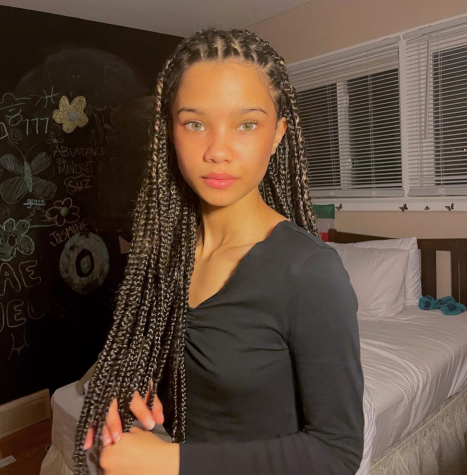
Jasmine Nichols is a Senior at Niles North who aims to write about contemporary issues within the black community. She enjoys learning about black history,...


